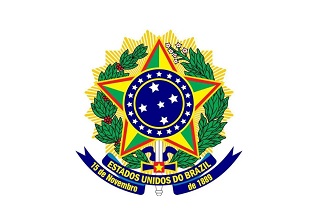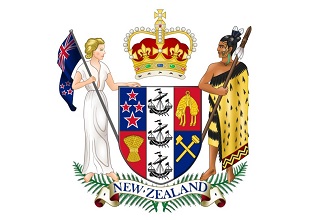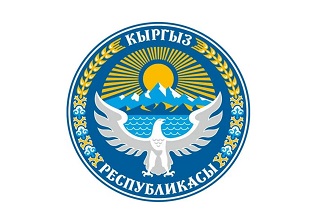Regarding the Inspection and Quarantine Requirements for the Sport Horse of Uruguay
1. Basis for inspection and quarantine
1.1 The Biosafety Law of the People's Republic of China;
1.2 The Entry-Exit Animal and Plant Quarantine Law of the People's Republic of China and the Regulations for its implementation;
1.3 The Law of the People's Republic of China on Import and Export Commodity Inspection and its implementing Regulations;
1.4 Protocol between the General Administration of Customs of the People's Republic of China and the Ministry of Animal Husbandry, Agriculture and Fisheries of the East Coast Republic of Uruguay on Quarantine and Health Requirements for sports horses imported from China from Uruguay.
2. Name of the goods allowed to be imported
Sports horses (speed and equestrian horses) that were born, bred or kept continuously in Uruguay for at least 6 months.
3. Requirements for quarantine examination and approval
The Ministry of Animal Husbandry, Agriculture and Fisheries of the East Coast Republic of Uruguay (hereinafter referred to as Uruguay) shall conduct quarantine inspection on horses exported to China on the basis of the Entry Animal and Plant Quarantine Permit of the People's Republic of China issued by the General Administration of Customs of the People's Republic of China (hereinafter referred to as China). Each entry quarantine permit allows only one batch of horses to be imported from Uruguay.
4. Requirements of the animal health situation in Uruguay
4.1 Uruguay confirms that according to the World Organization for Animal Health (WOAH) standards, Uruguay is free of African horse fever. In case of such epidemic, Uruguay shall take the following measures:
4.1.1 Immediately stop exporting sports horses to China;
4.1.2 Inform China within 24 hours of the details of the outbreak of the disease, including the name of the disease, the name and location of the farm where the disease occurred, the type and number of infected animals, and the control measures taken.
4.2 The Uruguay confirms that according to WOAH standards, there is no Venezuelan equine encephalomyelitis, equine encephalomyelitis (eastern and western types), Japanese encephalitis, West Nile fever, equine coital disease, and infectious equine metritis. In case of such epidemic, Uruguay shall take the following measures:
4.2.1 Consult with China to evaluate whether to continue the export, and suspend the export of sports horses during the negotiation;
4.2.2 Inform China within 24 hours of the details of the outbreak of the disease, including the name of the disease, the name and location of the farm where the disease occurred, the type and number of infected animals, and the control measures taken.
5. Animal health requirements for feedlots
5.1 No vesicular stomatitis has occurred in the past 3 years in the original breeding farm and within 13 km of the surrounding area.
5.2 No infectious anemia or glanders have occurred in the past 12 months in the original breeding farm where the exported sports horses are located and within a radius of 8 kilometers.
5.3 There have been no cases of equine rhinopneumonia, equine viral arteritis, equine influenza, Hendra disease, Nipah disease, rabies, equine piriformiasis, equine paratyphoid (Salmonella aborticus equi), leptospirosis, equine epidemic lymphangitis, equine adenopathy, anthrax, equine pox, equine mange, sura disease in the past 12 months in the breeding farms exporting sports horses.
5.4 Export sports horses to be immunized against equine influenza with inactivated vaccine at least twice in the six months before entering the isolation facility.
5.5 The exported exercise horses were not immunized against West Nile fever.
5.6 Before entering the quarantine farm, the exported sports horses shall undergo clinical examination in the original breeding farm, and no clinical symptoms of the above specified infectious diseases are found, and the relevant diseases shall be tested in the laboratory approved by Uruguay in accordance with the quarantine requirements of the original breeding farm, and the result is negative.
6. Quarantine requirements
6.1 Sports horses that pass quarantine in the original breeding farm shall be quarantined in an isolation farm approved by Uruguay for at least 30 days. During the quarantine period, clinical examination was carried out on the exported sports horses one by one to confirm that the horses did not have any clinical symptoms of infectious diseases, and the relevant diseases were tested in the laboratory approved by Uruguay in accordance with the quarantine requirements, and the results were negative. Laboratory test results are valid for 45 days.
6.2 During the quarantine period, under the supervision of the official veterinarian of Uruguay, the exported sports horses must be treated with effective drugs approved by Uruguay to remove internal and external parasites and leptospira for preventive treatment.
7. Transportation requirements
7.1 All means of transport for the carriage of sports horses must be cleaned and disinfected with disinfectants approved by the Uruguay under the supervision of an official Uruguay veterinarian.
7.2 Within 24 hours before the export, the official veterinarian of Uruguay conducted clinical examination of the exported sports horses and did not find any clinical symptoms and signs of infectious diseases.
7.3 The forage and bedding used during the quarantine period and during transportation shall not come from the area where there is an equine epidemic to be reported, and shall meet veterinary health conditions.
7.4 During transportation, the exported sports horses shall not pass through the areas where there are horse epidemics that need to be reported, shall not come into contact with other animals, and shall not be mixed with other animals for transportation.
8. Quarantine certificate requirements
For those who pass the quarantine inspection, Uruguay shall issue a quarantine and health certificate (printed in Chinese, Spanish and English) in accordance with the samples of certificates confirmed by both sides, which shall contain one original and at least two copies and shall include the following contents:
8.1 the name and address of the exporter and importer, as well as the name and address of the export quarantine quarantine site;
8.2 the date of shipment, port of departure, means of transport and flight number;
8.3 the number, breed, chip number and/or passport number, sex and age of the exported sports horse;
8.4 a statement that the quarantine requirements under this Protocol have been met;
8.5 clinical examination results, laboratory test methods and results (and indicate the sampling date and test date), the name and address of the official laboratory or officially recognized laboratory;
8.6 The name, dosage, manufacturer and date and place of the drug used for parasite removal, preventive treatment and disinfection; The type, validity period, manufacturer and time of vaccination;
8.7 the date of issuance of the certificate, the name and signature of the official veterinarian;
8.8 Official seal.
Upon arrival at the port of entry in China, if the horse does not have a valid quarantine certificate or does not have a quarantine certificate, China will return the horse or destroy it.
It is hereby announced
GACC
Dec. 12, 2023




